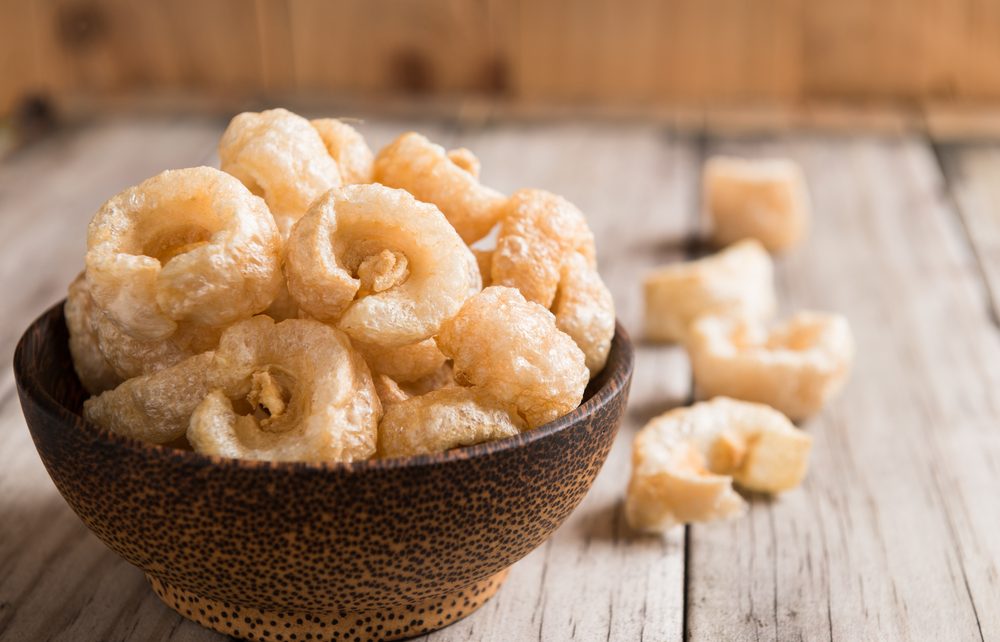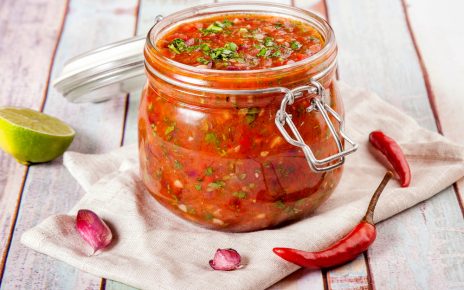Have you ever heard the saying, “you can’t have your cake and eat it too”? Well, when it comes to following a ketogenic diet, that saying may ring true for many of your favorite snacks. However, there is one snack that seems to defy all odds and remains a popular choice among keto dieters: pork rinds.
Yes, you read that right – pork rinds. The same crunchy snack that has been around for decades and often associated with unhealthy snacking habits. But on a keto diet, things are different. Carbs are limited, protein is moderate, and fat is encouraged. And surprisingly enough, pork rinds fit into this equation quite nicely. In this article, we will dive deep into the world of pork rinds and answer the question on every keto dieter’s mind: Are pork rinds truly keto-friendly? We’ll explore their nutritional breakdown, factors to consider when choosing them for your keto diet, health benefits they offer (yes!), as well as any potential drawbacks they may have. So grab a bag of pork rinds (if you haven’t already) and let’s get started!

Get yours from Amazon
Understanding the Basics of the Ketogenic Diet
If you’re looking to understand the basics of the ketogenic diet, you’ll need to know how it works and what foods are allowed – so get ready to dive in! The keto diet is a high-fat, low-carbohydrate diet that forces your body into a state of ketosis. In this state, your body burns fat for energy instead of glucose from carbohydrates. This means that you need to drastically reduce your carbohydrate intake and increase your fat intake.
One of the benefits of ketosis is weight loss. When you’re in ketosis, your body burns more calories than it would on a traditional high-carbohydrate diet because it must work harder to convert stored fat into energy. Another benefit is increased mental clarity and focus. Studies have shown that being in ketosis can improve cognitive function and reduce brain fog.
To achieve ketosis, you need to drastically reduce your carbohydrate intake to 20-50 grams per day. This means cutting out breads, pasta, rice, potatoes, and other starchy foods. You should also limit sugary fruits like bananas and grapes. Instead, focus on consuming healthy fats like avocados, nuts, seeds, coconut oil, olive oil, and fatty fish like salmon.
Nutritional Breakdown of Pork Rinds
You’ll be surprised to know just how low in carbs and high in protein these crunchy snacks can be! Pork rinds are a popular keto snack, and for good reason. They’re made from the skin of a pig that has been seasoned and fried until crispy. Here’s a breakdown of their nutritional value:
- Protein content: A serving size of pork rinds (one ounce) contains about 17 grams of protein. This is great news for those following a ketogenic diet because it helps keep you full and satisfied for longer periods.
- Fat content: Pork rinds are high in fat, with one serving containing around 9 grams of fat. However, most of the fats found in pork rinds are healthy fats like oleic acid, which has been shown to improve cholesterol levels.
But what about carbs? The good news is that pork rinds are incredibly low in carbohydrates. In fact, one serving only contains around 1 gram of carbs. This makes them an excellent choice for anyone trying to stick to their daily carb limit while still satisfying their cravings for something crunchy.
Lastly, it’s worth noting that not all pork rinds are created equal. Some brands may add extra ingredients like sugar or MSG, so it’s essential to read the label before purchasing.
Factors to Consider When Choosing Pork Rinds for a Keto Diet
When selecting pork rinds for your keto diet, there are a few factors to consider. One of them is the brand comparison. Some brands may add unhealthy additives or use low-quality ingredients, which could affect your overall carb intake and nutritional goals. It’s essential to read the label carefully and choose a reputable brand that uses high-quality pork and minimal processing.
Another factor to keep in mind when choosing pork rinds for your keto diet is the flavor options. While traditional pork rinds are delicious, some brands offer different flavors such as BBQ, spicy, or even sweetened varieties. You must check the label for added sugars or artificial flavors that could increase your carb intake and kick you out of ketosis.
It’s also crucial to monitor your serving size when consuming pork rinds on a keto diet. Although they are low in carbs and high in protein, overeating can lead to an excessive calorie intake that could hinder weight loss progress. Stick to a reasonable portion size and pair it with other healthy snacks like nuts or vegetables.
Health Benefits of Eating Pork Rinds on a Keto Diet
Eating pork rinds on a ketogenic diet can provide numerous health benefits, including increased satiety and improved insulin sensitivity. Research suggests that incorporating high-protein snacks like pork rinds into your diet could lead to significant weight loss and improvements in insulin resistance markers – especially if you are obese or overweight. Plus, compared to other crunchy snack options, pork rinds are low in carbs and high in protein, making them an excellent choice for anyone following a keto lifestyle.
One way to incorporate pork rinds into your meals is by using them as a breadcrumb substitute. Crushed up pork rinds can be used instead of breadcrumbs in recipes like meatballs or chicken nuggets. Not only does this add flavor and crunch to your dish, but it also helps keep the carb count low. Another idea is to use pork rinds as a dipper for guacamole or salsa instead of tortilla chips.
Additionally, studies have shown that eating high-protein snacks like pork rinds can help increase feelings of fullness and reduce overall calorie intake. This means that snacking on some crispy pork rinds between meals may actually help you consume fewer calories throughout the day – which could ultimately lead to weight loss if you’re trying to shed some pounds.
Potential Drawbacks of Consuming Pork Rinds on a Keto Diet
If you’re not careful with your snacking choices, it’s easy to overdo it on certain high-fat, low-carb snacks that can hinder weight loss progress on a ketogenic diet. Pork rinds are one such snack that you may want to consume in moderation if you’re following a keto diet. While they are a great source of protein and fat, they do come with certain potential drawbacks.
One possible drawback of consuming pork rinds on a keto diet is digestive issues. Some people may experience bloating or stomach discomfort after eating pork rinds due to the high fat content. This can be especially problematic if you already have digestive issues or a sensitive stomach. As such, it’s important to pay attention to how your body reacts when eating pork rinds and adjust your intake accordingly.
Another potential issue with consuming pork rinds as part of a keto diet is sustainability. While they make for an easy and convenient snack option, constantly relying on them for your daily dose of fat and protein can get tiring quickly. Variety is key when following any type of diet, so try switching up your snack options every once in a while to keep things interesting.
Conclusion
So, are pork rinds suitable for a keto diet? The answer is yes, but with a caveat. As with any food on the keto diet, you must understand the nutritional value and choose wisely. Pork rinds can be an excellent source of protein and healthy fats while being low in carbs. However, beware of added flavors or oils that may contain hidden sugars and disrupt ketosis.
Think of choosing pork rinds like picking your path through a dense forest. Stay focused on your goal of staying in ketosis and navigate around any potential pitfalls. With careful consideration, pork rinds can be a delicious addition to your keto snacking options. Remember to read labels and choose plain varieties without added ingredients that may derail your progress. Keep moving forward on your journey towards optimal health by making informed choices every step of the way.



